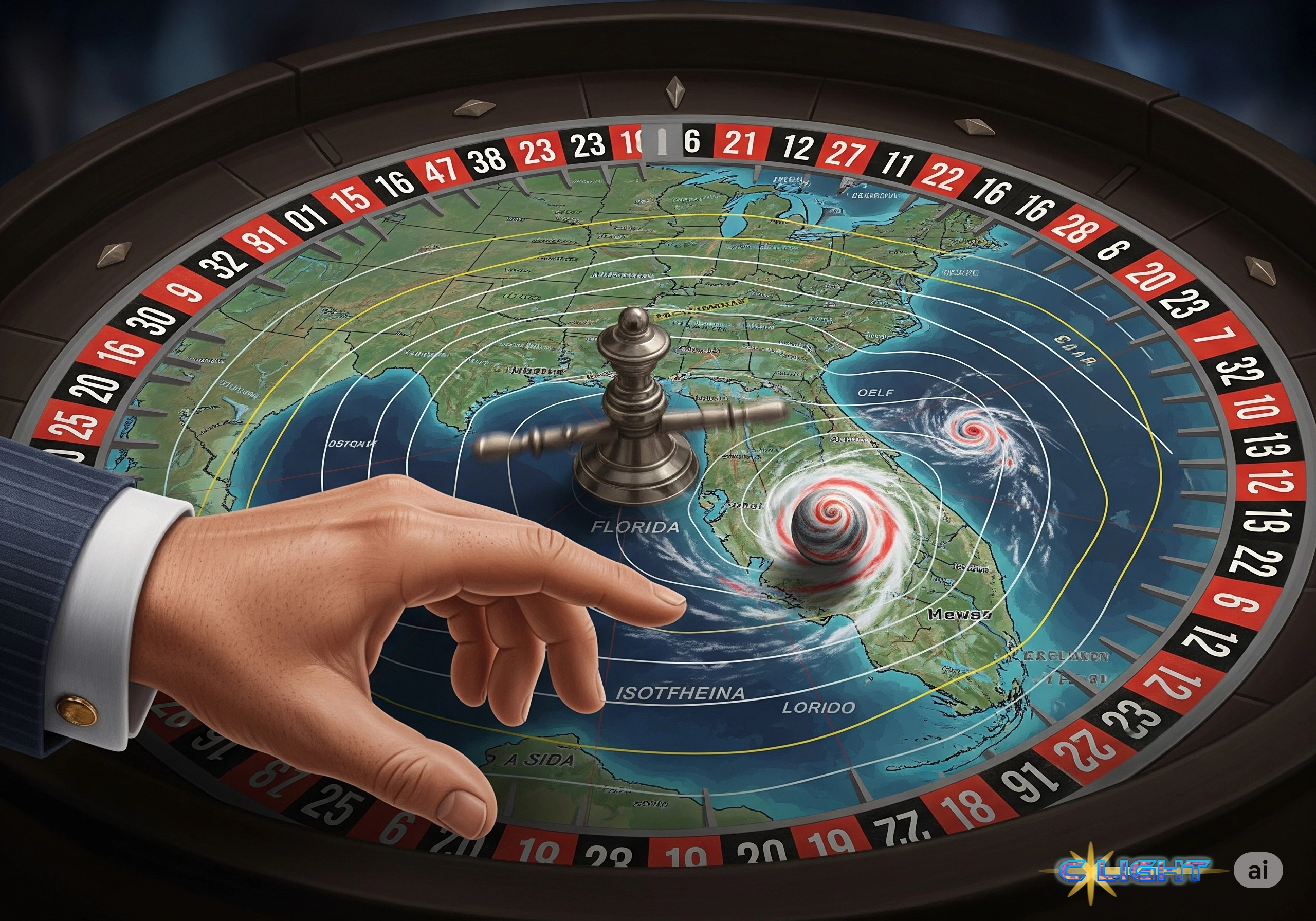A collective, if wary, sigh of relief was breathed across the nation’s meteorological community this week. After intense public and political pressure, the Pentagon walked back a dangerous and baffling decision to cut off a vital stream of weather data essential for hurricane forecasting. But this story is not a simple victory for good governance. Instead, it is the latest and one of the most alarming examples of a disturbing pattern from the Punk administration: governance by chaos. It is a cynical playbook where a crisis is manufactured by threatening to take something vital away, only for the administration to “solve” it later, expecting praise for averting a disaster of its own making.
Part I: The “Cybersecurity” Smokescreen
The crisis began with a sudden announcement that the Navy’s Fleet Numerical Meteorology and Oceanography Center would discontinue distributing data from the Defense Meteorological Satellite Program, a system that has been a workhorse for military and civilian forecasting for over 50 years. The initial justification offered for this abrupt and dangerous move was a vague and still-unexplained “cybersecurity risk.”
The announcement was met with immediate shock and skepticism from the scientific community. This data stream, providing crucial inputs for modeling the track and intensity of tropical cyclones, had been flowing to civilian agencies like the National Oceanic and Atmospheric Administration (NOAA) for decades without major incident. To suddenly declare it a security threat on the cusp of peak hurricane season struck many experts not as a prudent security measure, but as a flimsy pretext for a disruptive and reckless action.
Part II: The High-Stakes Backlash
The pushback was swift and fierce, coming from both the scientific and political arenas. Rick Spinrad, who led NOAA under the previous administration, warned that cutting this data would directly “worsen the country’s hurricane forecast abilities.” Other meteorologists and climate scientists echoed the alarm, explaining that while there are newer satellites, the older military program provides unique data points that improve the reliability of the models. Losing it would create a dangerous blind spot in the nation’s forecasting capabilities.
This scientific alarm was amplified in Congress. Representative Eric Sorensen, a Democrat from Illinois and a former meteorologist himself, immediately condemned the “short-sighted decision.” He and other members of the House Science, Space, and Technology Committee issued statements and made inquiries, demanding that the Pentagon explain its rationale and reverse course.
The entire debate took place against a tragic and high-stakes backdrop: the recent, deadly flooding in Texas that claimed over 130 lives. This was not a theoretical argument about data points and algorithms. It was a real-world struggle over tools that are essential for protecting American lives and property at a time when extreme weather events are becoming more frequent and more deadly.
Part III: The Quiet Reversal and the Lingering Question
Faced with this unified backlash, the Pentagon reversed course. A Navy spokesperson announced that officials had “found a way to meet modernization goals while keeping the data flowing.” The new official line was that the planned phase-out was part of a “modernization effort,” and that after “feedback from government partners,” they had found a better path.
But when pressed directly by reporters from The Hill about the original justification—the supposed “cybersecurity risk”—the spokesperson refused to answer. The silence on this point is deafening and speaks volumes. It is a tacit admission that the initial reason was a pretext, a smokescreen for a decision that had little to do with security and everything to do with a top-down, chaotic approach to governance that fails to consult with experts or consider real-world consequences.

A Reckless Game
This episode is a perfect illustration of the administration’s dangerous pattern of behavior. It is eerily similar to other recent events, such as when the administration threatened to cut a specific stream of school funding, only to “give it back” weeks later amid public outcry.
But there is a profound and dangerous difference between playing political games with education grants and playing them with hurricane data. A delayed school grant is a cynical act of political theater designed to create a problem that the President can then claim to have solved. A deliberately degraded hurricane forecast during the peak of the season is a reckless gamble that carries a potential body count. It is a manufactured crisis that risks American lives for what appears to be little more than a political stunt, leaving the public to wonder what vital safeguard will be put on the chopping block next.
Discover more from Clight Morning Analysis
Subscribe to get the latest posts sent to your email.










